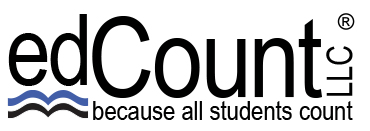edCount, ACS Ventures, the Nebraska Department of Education, and the Indiana Department of Education presented a NCME conference session to share information about a compilation of resources developed by the federally-funded Strengthening Claims-based Interpretations and Uses of Large-scale Science Assessment Scores (SCILLSS) project. The resources are designed to (a) provide state and local educators with a grounding in the principles for high quality assessments that are critical to the appropriate selection, development, and use of assessments in educational settings, and (b) offer a framework for making decisions about developing or adopting tests, as well as for evaluating tests currently in use.
The presentation focused on a discussion of two tools that are designed to assist educators in developing a deeper understanding of the components of a comprehensive assessment system, where information can be efficiently collected and evaluated to support inferences about student achievement and the appropriate use and interpretation of test scores–Ensuring Rigor in State Assessment Systems: A Self-Evaluation Protocol and Ensuring Rigor in Local Assessment Systems: A Self-Evaluation Protocol. Presenters also introduced and discussed the Digital Workbook on Educational Assessment Design and Evaluation, a companion resource developed by SCILLSS partners that includes a collection of five interactive chapters designed to provide state and local educators with a grounding in the principles of high-quality assessments. The workbook provides an in-depth exploration of the purposes and uses of educational assessments and the concept of validity. It also further elucidates the four key validity questions that guide the evaluation of assessment scores for their intended purposes and uses.
To provide user perspective regarding the process and outcomes of implementing the SCILLSS resources at a state level, the Nebraska Department of Education, lead state and grantee on the SCILLSS project, and the Indiana Department of Education shared how their agencies implemented the protocol and workbook to better understand the current status of their state assessment system and frame next steps to enhance the overall quality them, ensuring the validity and reliability of test scores for their intended uses. A highlight of the session was hearing a school principal from Nebraska share how her teachers benefited from implementing the local protocol to better understand the status of their local assessment system.
The NCME presentation slides, the local and state self-evaluation protocols, and the digital workbook can be found here and more information about the SCILLSS project is available here.
